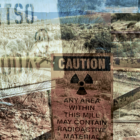Every year it seems, bills people have sweated over for months languish in the final days of the legislative session. Only a few are destined to make it, in a competition for time involving many hard choices. As the clock winds down to noon tomorrow, lawmakers are attempting to funnel bills through a window that grows smaller by the hour.
At this stage, successful measures have broad support or the backing of lawmakers who have the muscle to push them through. And just about every year, momentous bills end up successful in the final hours thanks to intricate maneuvers.
Take, for example, Senate Bill 8, which would update state elections law to expand voting rights, create more access to the ballot for tribes, and make it easier to vote by mail.
It’s a bill that Democrats, who control the Legislature, really want and by the final week of the session it hadn’t made it to the House, thanks to a procedural maneuver — a call of the Senate — employed by Senate Minority Whip Craig Brandt, R-Rio Rancho, that kept the voting rights measure bottled up.
The bill is a local example of a national struggle over voting rights. Across the country, many states controlled by Republicans are passing laws that restrict voting to prevent what they say is voter fraud after the 2020 election. Democrats respond there’s no evidence of fraud and the laws make it more difficult to vote, especially for voters of color.
The impetus for the legislative battle in New Mexico came in January, when Democrats in the U.S. Senate failed to pass a voting rights bill that would have enshrined greater access to voter registration and voting due to GOP opposition. Essentially, the inaction left it up to individual states to decide whether to expand or limit access to voting.








